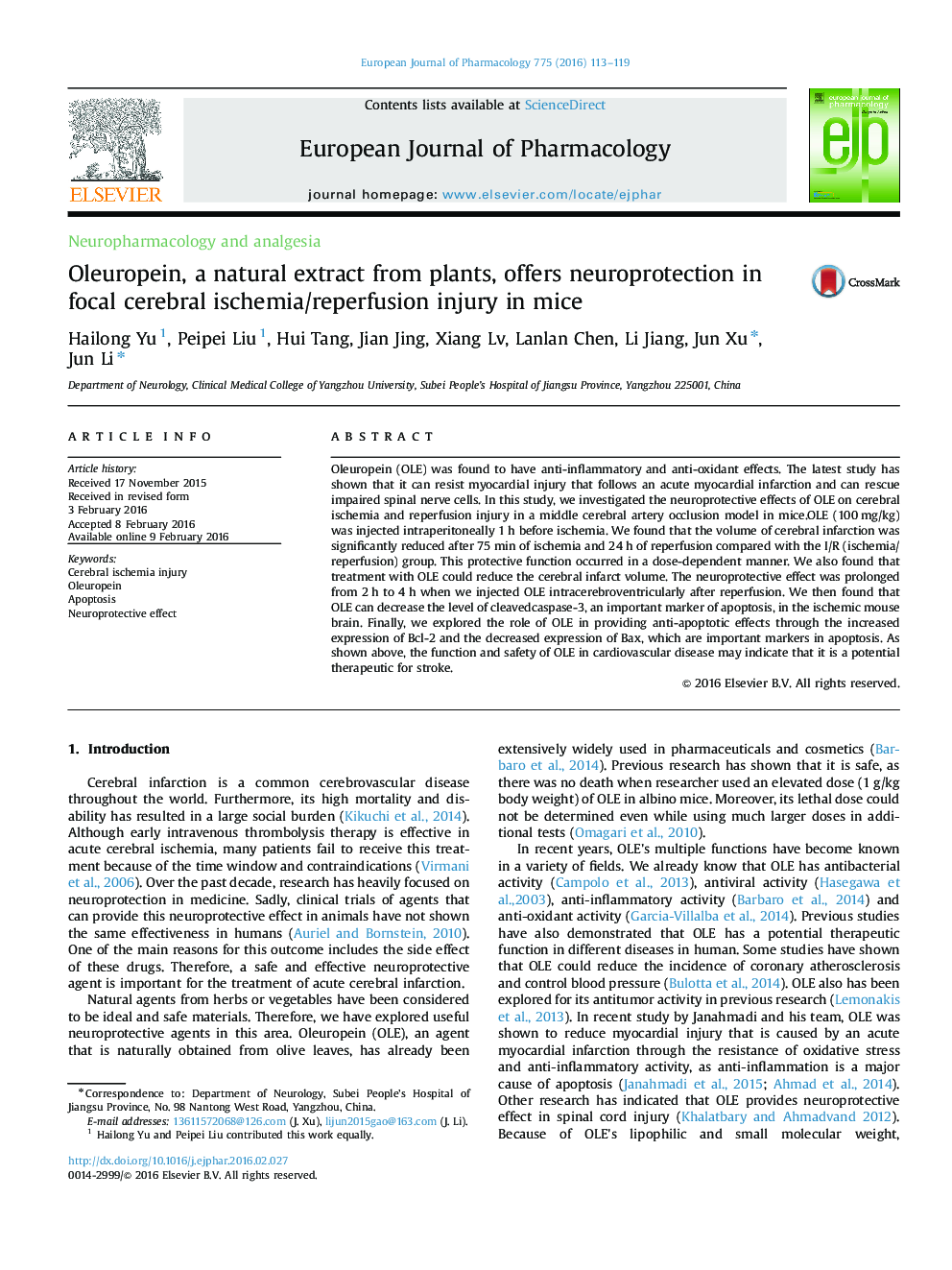| Article ID | Journal | Published Year | Pages | File Type |
|---|---|---|---|---|
| 2531152 | European Journal of Pharmacology | 2016 | 7 Pages |
Oleuropein (OLE) was found to have anti-inflammatory and anti-oxidant effects. The latest study has shown that it can resist myocardial injury that follows an acute myocardial infarction and can rescue impaired spinal nerve cells. In this study, we investigated the neuroprotective effects of OLE on cerebral ischemia and reperfusion injury in a middle cerebral artery occlusion model in mice.OLE (100 mg/kg) was injected intraperitoneally 1 h before ischemia. We found that the volume of cerebral infarction was significantly reduced after 75 min of ischemia and 24 h of reperfusion compared with the I/R (ischemia/reperfusion) group. This protective function occurred in a dose-dependent manner. We also found that treatment with OLE could reduce the cerebral infarct volume. The neuroprotective effect was prolonged from 2 h to 4 h when we injected OLE intracerebroventricularly after reperfusion. We then found that OLE can decrease the level of cleavedcaspase-3, an important marker of apoptosis, in the ischemic mouse brain. Finally, we explored the role of OLE in providing anti-apoptotic effects through the increased expression of Bcl-2 and the decreased expression of Bax, which are important markers in apoptosis. As shown above, the function and safety of OLE in cardiovascular disease may indicate that it is a potential therapeutic for stroke.
